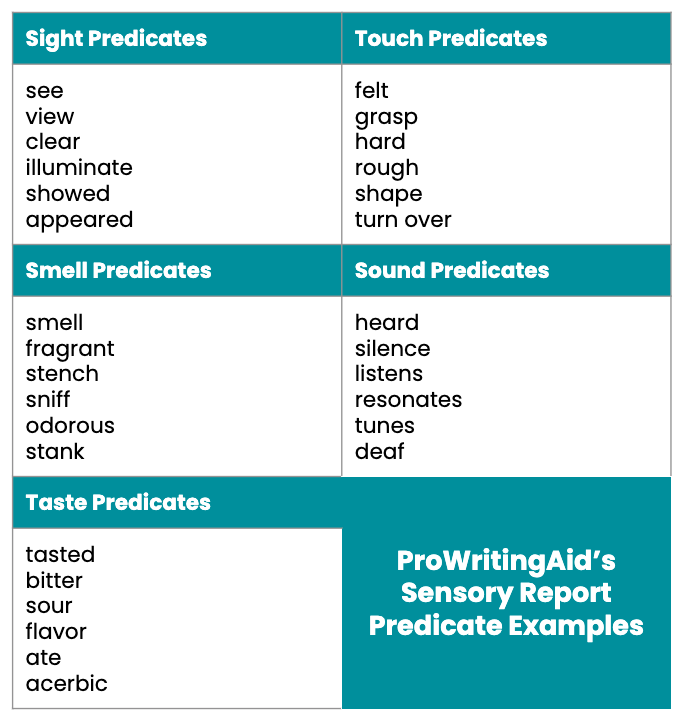It’s important to use all five senses in your writing. Every writer has a tendency to favor one or two of their senses over the others, and this affects the way that he or she experiences the world, processes information and makes memories. This means that we tend to describe characters, settings or actions using words related to our own favored senses. Writing that skews too far toward one sense over the others will resonate more with readers who favor the same sense and less so with those who do not.
The Sensory Check looks for NLP Predicates. These are words (primarily verbs, adverbs and adjectives) associated with the specific senses. There are thousands of words associated with each but some examples are included, below:

How to Experience an Explosion
Imagine a fictional situation that can be described using different predicates to resonate with different senses. We've imagined an explosion as an example.
The blast from the explosion was blinding. Jane searched the sky and saw a plume of smoke rising from her office.
The heat from the explosion hit Jane like a bus. Her legs felt riddled with bullets as she struggled along the rough brick wall toward her office.
The explosion was deafening. Sirens immediately began to wail as Jane struggled to her feet, her ears drumming like machine gun fire.
The explosion filled the street with an acrid cloud of noxious smoke. Jane choked on the fumes as she pulled her sweater up over her burning nostrils.
The explosion filled the street with an acidic cloud of toxic smoke. With the taste of charcoal burning her tongue, Jane struggled toward her office.
Now check out this example where more than one sense is used together:
- The heat from the explosion hit Jane like a bus. Sirens began to wail and a plume of smoke rose from her office. With the taste of charcoal burning her tongue and her ears drumming like machine gun fire, Jane thought of the files on her desk and knew that she needed to go back.
The reader experiences the explosion in a much more vivid way when several of her senses are ignited.
When you are writing for a broad audience, you should try to use words associated with all of the senses. It will help emotionally engage with the widest range of people.
Running your writing through ProWritingAid’s Sensory Report will make sure that you have all five senses covered. The report will tell you how many of each type of word you have used, and highlights them in your text so that you can see how they are spread throughout your document.
You can click on each highlighted word, and ProWritingAid will tell you what type of word it is. This will help you to work out if you're using the same sense repeatedly, or if you could be clustering the senses together as we did above.
Which sense do you tend to use the most? Why not run your writing through ProWritingAid to find out?

